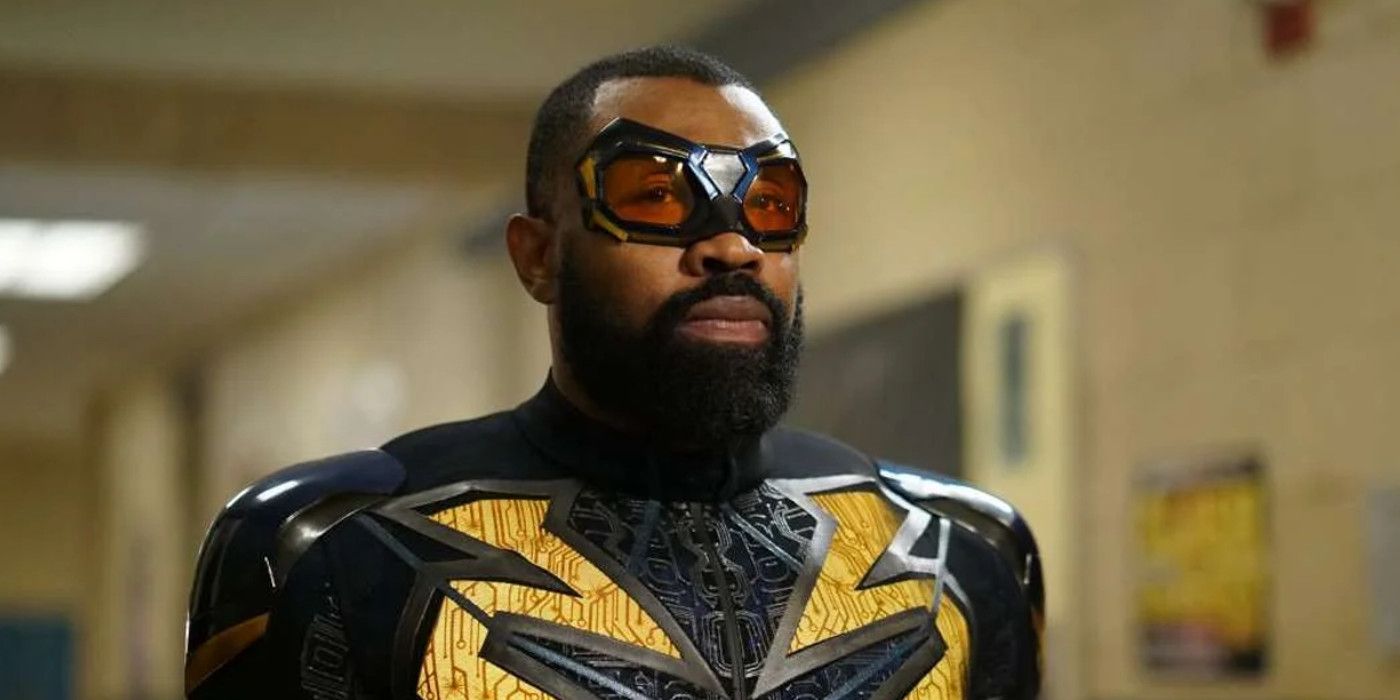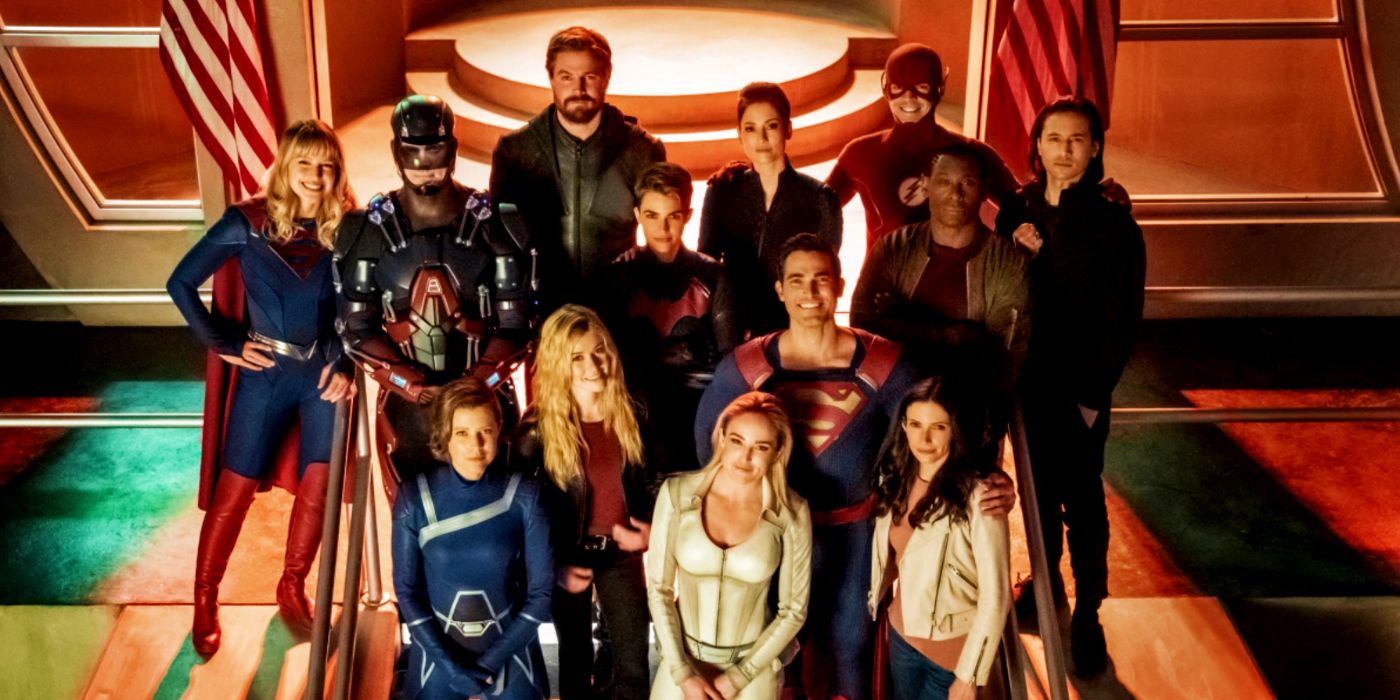The Arrowverse is one of many franchises to have had their production affected by the current Coronavirus pandemic, and so, the new seasons should be shorter than normal. As the global crisis continues to develop, the TV and film industry has had to make tough calls through studios and networks in order to protect their employees from catching COVID-19. In the case of The Flash, Supergirl, and Batwoman, whose seasons have yet to be completed, production has been suspended since the middle of March.
While Legends of Tomorrow wrapped filming earlier this year, The Flash, Supergirl, and Batwoman have, combined, 3-6 episodes left to shoot. This has, in turn, caused The CW to shake up their airing schedule as all four of the DC dramas won’t return until late April. Warner Bros. TV is attempting to film and air those episodes later in 2020, but that could potentially change. Despite all the DC shows having been renewed, it has yet to be determined when they can begin filming as well as premiering those new seasons. The status quo for most of the Arrowverse series (except Legends of Tomorrow and Black Lightning) has been to shoot 22 episodes from July to April.
RELATED: Batwoman Confirms Conspiracy Behind Lucius Fox's Death
But given the status of the Coronavirus pandemic, it’s almost impossible to execute that kind of production plan right now. With the addition of Superman & Lois, which has a straight-to-series order, the Tyler Hoechlin/Elizabeth Tulloch-led drama is also suffering from the virus while casting continues. Even though CW/WBTV hasn't revealed any new changes for the upcoming TV season, next season might be the right opportunity for an experiment that fans and critics alike have been proposing for years: a shorter episode order.
22 Episodes Have Been Proven To Be Way Too Much
One of the oldest formats that many networks go with is the 22-episode order, which automatically guarantees said shows to run from September/October to May. But the TV landscape has evolved over the years, with less live-viewing and more devotion to streaming/binge-watching. It’s one of many factors that have made the 22-episode structure outdated. With hiatuses also coming into play, it has been proven to affect viewers and their consistent commitment to their favorite shows. But the biggest element that this excessive episode order has confirmed is that it can affect the qualities of season-long story arcs.
The superhero/comic book genre is no exception, as other platforms have begun to invest in shorter seasons, anywhere between 10-16 episodes or even less. For The CW’s DC properties, most of their dramas have continued to stick to 22 episodes ever since Smallville, prior to the inception of the Arrowverse in 2012. However, The Flash made an interesting change this season through their new showrunner Eric Wallace. While committing to a full season, as per usual, the new leadership mixed up the storytelling. Rather than have one big bad across at least 20 episodes, The Flash season 6 was split into “graphic novels.”
With the first half focusing on Sendhil Ramamurthy’s Bloodwork, the second installment is devoted to the Mirrorverse saga through Eva McCulloch (Efrat Dor). Not only does it allow for more stories to be told in one season, but it retains viewer attention better. Viewers are also able to get other stories within the central plots, such as the Blackhole organization and the arrival of Natalie Dreyfuss’s Sue Dearbon. Despite comic book shows like Netflix's The Defenders franchise having gone with fewer episodes, the binge-format held it back to a degree. If The CW went with a 16-episode order across a whole year, it keeps the weekly water-cooler effect alive.
Shorter Episode Orders Allow For Tighter Storytelling
Even though splitting a 22-episode season into a format like The Flash works, there are other methods that have been just as effective. DC Universe has stuck to keeping their programming between 11-15 episodes, with 13 now being the sold number as of late. Titans and Doom Patrol have the benefit of releasing episodes that beyond 42 minutes. But even when they have released shorter episodes, their storytelling approach has still worked. For The CW, the DC TV shows have a number of episodes ever season that is more standalone from the main arcs.
While some work better than others, it can definitely be distracting from the main story that runs through the entire season. In the case of the DC Universe dramas, following a central story for 13 hours allows the characters of staying more true to themselves. Rather than having to act out of character in the middle of the season because the plot dictates it, Titans and Doom Patrol let their casts remain consistent. Whether it progresses the storylines or not is a discussion within itself. However, it ensures that the storylines can have a consistent flow without suddenly having to delay the natural progression because it's too soon in the season.
But for people like Flash, Supergirl, Batwoman, and the Legends, they have to be held back in order to not finish their stories too early. The CW will more than likely never have their DC TV shows decrease to a 13-episode run per season. But the recent seasons of Black Lightning and Legends of Tomorrow have held on to airing 16 episodes. That is the number that every DC series should be striving for as it can guarantee The CW in having DC content to air from October-May.
The Budget Can Be Efficiently Used Without Overloading The Cast & Crew
Currently, The CW seems to want to film the remaining scripts of The Flash, Supergirl, and Batwoman’s current seasons as soon as possible. But whether they’ll get added on to the supposed 22-episode order or included has yet to be determined. If the network wants to make sure the plots of this season get a proper conclusion, viewers could be getting a 23-25 episode commitment next season. That would be the safest way to wrap up the ongoing storylines without taking any time away from the plots of next season. But that could potentially create new problems than solving the old ones. Since it is unknown when it’ll be safe to start filming, the Arrowverse may not get to start production in July as usual. Depending on what the situation looks like this summer, with several productions still suspended, filming may not begin until this fall, which will delay the airing schedule too.
But by ordering only 16 episodes for next season, it increases the chances of production going smoother. Instead of having to stretch a budget for 23-25 episodes, the resources can be put to better use whether it’s more focused on the VFX, new locations, or big guest stars. While Black Lightning films in Atlanta, GA, the other five Arrowverse series are based in Vancouver, Canada. By committing to a shorter season, it’d benefit the massive amount of actors and crew members that work over 16 hours for almost 10 months every season. The idea of even considering overloading the talent on set as well as the writers and producers with an increased episode number will do more harm in the long run. It’s also unclear whether or not the seemingly planned crossover is even possible to make for the coming season.
With 16 episodes and some additional budget to spare, it could benefit the mysterious crossover, whether it gets moved to later in the season. Depending on how things go in the next few months, it might even be beneficial to skip the crossover all together next season. The focus could then be put on experimenting with the shorter episode order while also not stretching the cast and crew thin that will still be living with the effect of the 2020 crisis. The CW will hopefully clarify what their plans are during or after the conclusion of the current season in May. But ideally, the network will consider a strategy that gives the Arrowverse an easier TV season following the Coronavirus.




